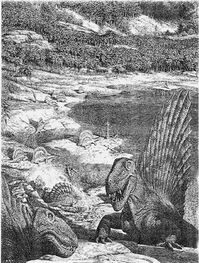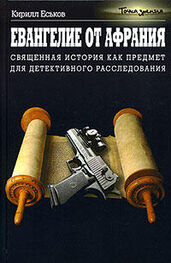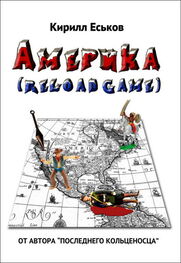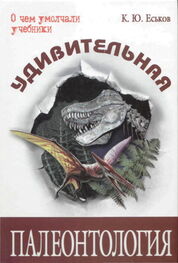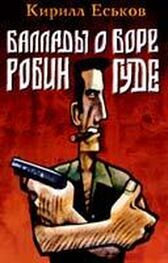It is rather hard to analyze the reign of the first Princes of Ithilien, Faramir and Éowyn, in political or economical terms – it appears that they had neither politics nor economics over there, but only a never-ending romantic ballad. Nearly all the contemporary poets and painters must have contributed to the creation of the captivating image of the Fairy of the Ithilien Woods (weird, isn’t it – Ithilien, the industrial heart of Middle Earth, had forests once!), since Faramir’s modest court had become a sort of a holy shrine to them, and not making a pilgrimage there was the height of bad taste. But even correcting for the unavoidable idealization, one has to admit that Éowyn must have been an exceptionally pure soul.
Thanks to that army of artists we have several portraits of Prince Faramir; the best one I know of is reproduced in a monograph entitled Philosophical Agnosticism and its Early Adepts recently printed by the Amon Súl Tower Publishers in Annuminas. In any case none of those portraits have anything in common with the chiseled profile gracing the cockades on the mustard-colored berets worn by the commandos of the Ithilien Paratrooper Regiment. By the way, the famous ‘mongooses’ – a special anti-terrorist unit whose soldiers were on every TV screen in Arda recently when they brilliantly freed the passengers of a Vendotenian airliner captured in Minas Tirith airport by the Hannani fanatics from the Northern Mingad Liberation Front – are part of that regiment, as well.
Faramir had committed exactly one act of foreign policy during his entire reign – he approved Baron Grager’s request to send him south of the river Harnen to conduct a series of intelligence and sabotage operations: “…by all signs the fate of Middle Earth will be decided there, in Near Harad.” Strangely, the subsequent fate of Grager of Aran (often called, not without justification, the savior of Western civilization) remains the stuff of unverified legends and anecdotes. The only thing that is known is the end result of his efforts – the massive rebellion of nomad Aranians against their Haradi masters, which had led, domino-fashion, to the fall of the entire ominous Harad Empire and its fracturing into a non-threatening bunch of warring tribes. Nobody knows how this adventurous intellectual had earned his iron-clad authority among the fierce savages of the Harnen savannah. The fairy tale of him accidentally buying a son of an Aranian chieftain at the Khand slave market appears entirely unreliable; the idea that his way to power went through chief priestess Svantatra’s bed is cute and romantic, but people familiar with the realities of the South can only laugh at it. Even the manner of the baron’s death is uncertain: either he perished in a lion hunt, or was killed accidentally while mediating a conflict over summer watering-hole rights between two small Aranian clans.
But the fate of Éomer is so incredible that some authors are still trying to prove that he was a legend rather than a real person. Having ascended to the throne of the Mark of Rohan after the Mordorian campaign, he had discovered – to his great surprise and displeasure – that there was no one left to fight any more, at least in the near Middle Earth. For some time the famed warrior had tried to amuse himself with tournaments, hunts, and amorous adventures, but quickly tired of it all and fell into depression. (Historical veracity impels me to admit that on the battlefields of love this chevalier sans per et sans rеproche was characterized by a total lack of taste combined with a fantastic appetite, so much so that Edoras wags suggested that their monarch’s motto should be ‘one for all.’) That was when the involuntarily idle monarch remembered a certain marvelous eastern faith that had led him to victory on the Field of Pelennor. At first Éomer wanted to make Hakimianism the state religion of Rohan, but then he came up with a more interesting plan.
At that time the Khand Caliphate was in the middle of an anemic religious war between two sects of Hakimians. It is still uncertain how Éomer decided which one of those was the one true faith. Personally, I suspect that he flipped a coin – the actual dogmatic differences were and are a fertile field for armies of theologians. Be that as it may, he converted his entire Royal Guard, idle and ready to fight anyone at all, to that sect (legend has it that one of Éomer’s warriors, when asked how he felt on the path of True Faith, responded: “Not bad, Tulkas be praised – my boots aren’t leaking”) and went South. The king left his cousin- twice-removed as regent in Edoras; sure thing, this plunged the country into dynastic struggles that lasted almost a century and culminated in the War of Nine Castles, which wiped out the entire knighthood of Rohan. To the total astonishment of his companions, once in Khand Éomer did renounce his previous life, gave all his possessions but the sword to the poor, and joined the order of Hannanites (warrior dervishes). Utilizing his commander’s talent in the service of his chosen sect, he crushed the opposition in three decisive battles, ending the twenty-six-year ‘holy war’ in only six months; the ‘good’ Hakimians dubbed him The Prophet’s Sword, while the ‘schismatics’ called him God’s Wrath. At the end of the third battle, when the heretics’ defeat was all but assured, Éomer was killed by a missile from an enemy catapult – truly the best death a genuine commander may wish for. The Hakimians promptly canonized him as a holy martyr, so he should have no problems obtaining the companionship of houranies .
This looks like a good place to stop… In conclusion, I would like to stress that I have filled the gaps in Tzerlag’s story at my own discretion. The old soldier bears no responsibility for my inventions, especially since many will now passionately charge the storyteller – who else? – with deviating from the mainstream version of the events of the end of the Third Age. One has to note that the public’s knowledge of these events is mostly derived from the adapted Western epos, The Lord of the Rings , at best, and often from the Sword of Isildur TV series and the Galleries of Moria first-person shooter game.
I have to sonorously remind those critics that The Lord of the Rings is the historiography of the victors, who have a clear interest in presenting the vanquished in a certain way. Had genocide taken place back then (where did those peoples vanish if it hadn’t?), then it’s doubly important to convince everybody, including oneself, that those had been orcs and trolls rather than people. Or I could ask them: how often do we find in human history rulers that would relinquish their power, for free, to some nobody from nowhere (pardon me – a Dúnadan from the North)? Yet another subject of immodest curiosity might be the actual payment Elessar Elfstone had to make to the wonderful companions he had acquired on the Paths of the Dead. I mean, summoning the powers of Absolute Evil (for a noble cause, of course) is totally commonplace, he’s neither the first nor the last; but for those powers to meekly revert back to nothingness after doing their job without asking anything in return sounds highly doubtful. At least I’ve never heard of such a thing. Or I can… I can, but I won’t. Whatever for? I have no desire to engage in this sort of polemics.
In other words, guys, live and let live. In our case it translates to this: you don’t have to listen to me spin tall tales if you don’t like them.
THE END
“Woe to the vanquished” (Latin) – see http://en.wikipedia.org/wiki/Vae_victis.
A kleptoparasitic species of seabird – see http://en.wikipedia.org/wiki/Skua.

